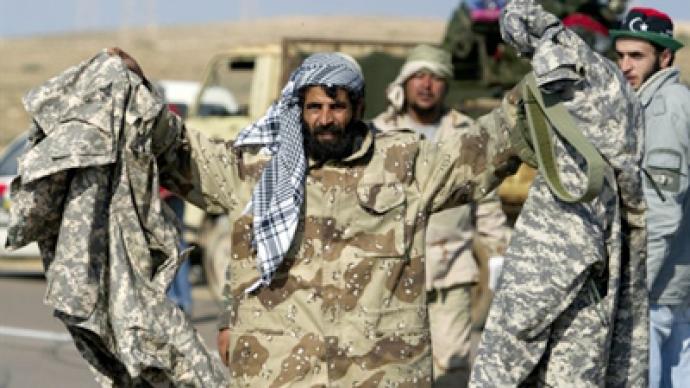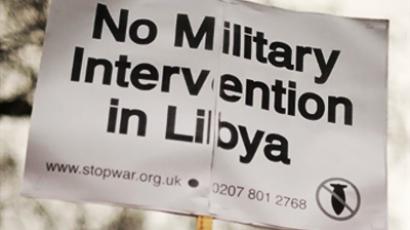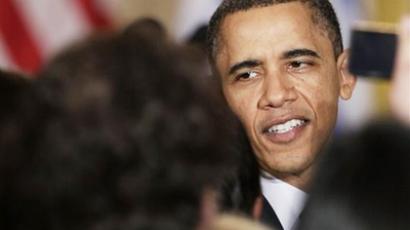Britain armed Gaddafi, now have designs on rebels

Britain is facing accusations from the International Criminal Court over the weapons it's sold to Gaddafi while the UK is considering arming more Libyans – rebels this time.
The rebels say they lack the ammunition needed to fight off the forces of Colonel Gaddafi.In the meantime, it is believed Gaddafi was planning to use force to crackdown on protesters long before the uprising began, and the UK was its main arms provider.That explains why the Libyan security forces have been putting down unrest in the country with plenty of rubber bullets, tear gas and other ammunition to a considerable degree British made.The UK was still selling arms to Libya just four months before Colonel Gaddafi turned them on his own people, with government ministers approving a deal for sniper rifles, bullets and tear gas.“There is a very strict set of guidelines that say where it is likely that human rights violations might take place, you are not supposed to sell the weapons. I would say, looking back through a number of credible sources, including an Amnesty International, that it was always very likely that equipment supplied to Colonel Gaddafi would and could be used in the brutal crackdown on protestors,” says Oliver Sprague from the non-governmental organization, Amnesty International.Arms exports is a big business in the UK, valued at nearly $US 12 billion in 2009.Now, a highly critical report by MPs exposes the scale of UK arms sales to some of the world’s most brutal regimes.The Libyan export licenses were some of the most valuable – according to the report, the UK sold nearly $350 million worth of arms there in the year leading up to September 2010.In the same year Egypt bought $27 million worth of small guns and electronic warfare equipment from the UK, and Bahrain ordered more than $10 million of guns and crowd control agents.Dozens of arms export licenses to the region have now been hastily revoked. But still, days into the unrest in Cairo, UK Prime Minister David Cameron led a junket to the Middle East to flaunt the wares of British arms dealers.“I can’t imagine who that was in the Prime Minister’s office, who said to them: look you have been arming these dictators to the teeth for the decades. They have spent a certain amount of the weaponry you gave them shooting their own population. Now is a really good time to go and try to sell them some more,”mocks John Rees from Stop The War Coaliton.
“I can’t imagine what damage it has done when people see British made weaponry in the hands of the people who are invading Bahrain and putting down its protesters at the moment,”John Rees says.The report’s authors say the government “misjudged the risk” of selling arms to countries like Egypt and Bahrain – but many would go much further.“One of the things that you’ve seen as a characteristic of British aid around the world over the last ten years has been the provision of this highly militarized security sector… so it’s exactly the opposite of trying to stimulate democracy – we are providing the means by which those countries’ regimes can clamp down on democracy,” says John Hilary, Executive Director of War on Want.Since the violence began, more than a thousand people have been killed in Libya, as well 26 killed and a thousand injured in Bahrain. Circumstantial evidence gathered by the report’s authors suggests much of that damage was done with British weapons.When the unrest started in the Middle East, the government scrambled to suspend arms export licenses. But this report is evidence that it closed the stable door long after the horse had bolted, when British weapons were probably already being used against civilians in Bahrain and Libya. The government still hasn’t ruled out arming the rebels in Libya – it remains to be seen whether these damning revelations will make them think twice. The British foreign secretary has said that the UN resolution on Libya made it legal “to give people aid in order to defend themselves.”And the pressure on Western governments to arm the rebels is growing. With Colonel Gaddafi digging in his heels, a string of high-profile figures have been speaking out in favor of the move:Bill Clinton, for instance, said he “would be inclined to do it.”So far, the UK has officially offered telecommunications equipment to the rebels. But many suspect help of a different kind may be on the way too.
The UN resolution specifies no ground troops in Libya. However there are reports of secret training bases for rebels. Journalist Barry Lando, the author of an article on the subject, believes that there is enough evidence to make this claim.“[There was] one rebel, who claimed that he had been trained by US special forces and Egyptian special forces at a training camp in the eastern part of the country. All that sounds reasonable because what the rebels need is not so much arms, they can use arms, but without training they will not be able to do anything,” he said “I think that the US, the British and the French, had all concluded that as well, and there is no way they can avoid giving them training.”














